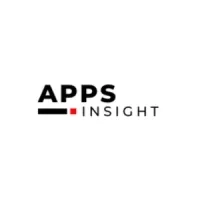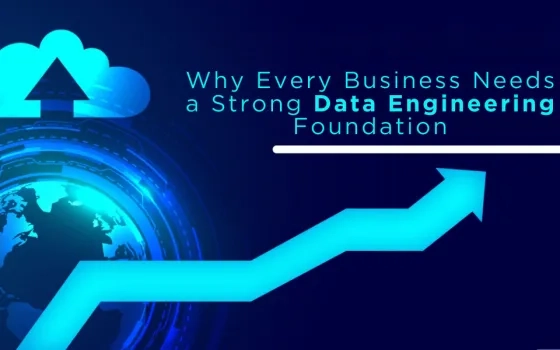Social media analytics tools are essential for marketers today. With the vast amount of data generated on social media platforms, understanding and utilizing this data can give you a significant competitive edge. Marketers use these tools to track, measure, and analyze their social media performance. This helps them make informed decisions, improve their strategies, and ultimately achieve better results.
Did you know that 73% of marketers believe that their efforts through social media marketing have been “somewhat effective” or “very effective”?. This statistic shows the growing importance of having the right tools to analyze social media data.
In this article, you will discover the top social media analytics tools available, learn about their features, and understand how they can help improve your marketing efforts.
Let's dive into the world of social media analytics tools!
About Social Media Analytics Tools
Social media analytics tools are software applications designed to help marketers track and analyze their social media performance. These tools collect data from various social media platforms like Facebook, Twitter, Instagram, and LinkedIn. They then present this data in an easy-to-understand format, often through dashboards and reports.
These tools are essential for several reasons. First, they help marketers understand what content resonates most with their audience. By analyzing likes, shares, comments, and other engagement metrics, you can see what works and what doesn't. Second, they allow you to track your social media growth over time. This includes monitoring follower counts, engagement rates, and reach. Lastly, they help you measure the effectiveness of your social media campaigns. You can see which campaigns drive the most traffic, leads, or sales.
In short, social media analytics tools provide valuable insights that can help you refine your marketing strategies. They save you time by automating data collection and analysis, and they help you make data-driven decisions to improve your social media performance.
What’s The Need To Look at Social Media Analytics Tools or Alternatives?
In today’s digital age, social media is a crucial part of any marketing strategy. However, just posting content isn't enough. You need to understand how your content performs and how it impacts your audience. This is where social media analytics tools come in.
These tools help you gain insights into your social media activities. They show you what type of content gets the most engagement, what times are best to post, and which platforms perform best for your brand. With these insights, you can optimize your strategy to get better results.
Sometimes, you might also need to look for alternatives to your current social media analytics tools. This could be due to several reasons. Maybe your current tool is too expensive, or it doesn't offer the features you need. Or perhaps it’s too complicated to use. By exploring alternatives, you can find a tool that better fits your needs and budget.
In essence, using social media analytics tools or finding the right alternatives can help you improve your social media performance. They provide you with the data and insights needed to make informed decisions and fine-tune your marketing efforts.
10 Top Social Media Analytics Tools in 2024
1) Later Social Analytics
Later Social Analytics is a powerful tool designed specifically for visual content platforms like Instagram and Pinterest. It helps marketers plan, schedule, and analyze their social media posts all in one place. With Later, you can easily see which of your posts perform best, understand your audience's preferences, and optimize your content strategy accordingly.
One of the standout features of Later is its visual content calendar. This allows you to drag and drop your posts to schedule them, making it incredibly user-friendly. Later also provides detailed analytics on your posts' performance, including engagement rates, reach, and follower growth. These insights help you understand what works and what doesn't, so you can continuously improve your strategy.
Additionally, Later offers hashtag suggestions and performance tracking, which can be a game-changer for increasing your content's visibility. With its straightforward interface and robust analytics, Later is a great choice for marketers focused on visual content.
Best For:
Later Social Analytics is best for marketers who heavily use Instagram and Pinterest and want a user-friendly tool to schedule and analyze their visual content.
2) HubSpot
HubSpot is a comprehensive marketing platform that offers robust social media analytics tools. It integrates seamlessly with your other marketing activities, providing a unified view of your efforts. HubSpot allows you to track the performance of your social media campaigns across different platforms, including Facebook, Twitter, LinkedIn, and Instagram.
One of the key strengths of HubSpot is its ability to tie social media performance directly to business outcomes. You can see how your social media efforts impact lead generation, customer acquisition, and revenue. HubSpot’s analytics dashboard provides detailed insights into engagement metrics, follower growth, and content performance. This helps you understand what type of content drives the most interaction and conversions.
Additionally, HubSpot’s social media tools are integrated with its CRM. This means you can track and manage all interactions with your audience from a single platform. The tool also offers features like social listening, which allows you to monitor mentions of your brand and industry keywords, helping you stay on top of trends and customer sentiment.
Best For:
HubSpot is best for marketers who want an all-in-one solution that integrates social media analytics with other marketing and sales activities. It’s ideal for businesses looking to measure the ROI of their social media efforts.
3) Sprout Social
Tools like Sprout Social is a versatile social media management tool that offers powerful analytics features. It’s designed to help marketers manage their social media presence, engage with their audience, and measure the effectiveness of their campaigns. Sprout Social supports multiple platforms, including Facebook, Twitter, Instagram, LinkedIn, and Pinterest.
One of the highlights of Sprout Social is its user-friendly interface and in-depth reporting capabilities. The tool provides detailed insights into your social media performance, such as engagement rates, audience demographics, and content effectiveness. You can generate custom reports that highlight key metrics and trends, making it easier to track your progress over time.
Sprout Social also offers features like social listening and sentiment analysis. These tools help you monitor brand mentions and understand how your audience feels about your content and brand. Additionally, Sprout Social’s scheduling and publishing tools allow you to plan and automate your posts, ensuring consistent and timely content delivery.
Best For:
Sprout Social is best for marketers who need comprehensive analytics and reporting features. It’s ideal for teams that manage multiple social media accounts and want to track their performance across all platforms in one place.
4) Google Analytics
Google Analytics is a powerful and widely-used tool that provides insights into your website traffic and user behavior. While it’s primarily known for web analytics, it also offers valuable social media analytics features. By integrating your social media accounts with Google Analytics, you can track how social media drives traffic to your website and understand the behavior of visitors from social platforms.
One of the key benefits of using Google Analytics for social media is its ability to track conversions. You can see which social media channels are most effective in driving conversions, whether it's sales, sign-ups, or other key actions. Google Analytics also provides detailed reports on social media referrals, showing you which platforms and posts generate the most traffic.
Additionally, Google Analytics’ Social Media Dashboard gives you an overview of your social media performance, including metrics like sessions, page views, and average session duration from social referrals. This helps you measure the impact of your social media efforts on your overall online presence.
Best For:
Google Analytics is best for marketers who want to track how social media impacts their website traffic and conversions. It’s ideal for those looking to integrate social media data with broader web analytics.
5) Tailwind
Tailwind is a specialized social media tool designed primarily for Pinterest and Instagram. It helps marketers plan, schedule, and analyze their visual content. Tailwind's user-friendly interface makes it easy to organize your posts and ensure they go live at the optimal times for engagement.
One of Tailwind's standout features is its SmartSchedule, which suggests the best times to post based on when your audience is most active. This can help increase engagement and reach. Tailwind also offers robust analytics that provide insights into your posts' performance, including metrics like repins, likes, comments, and overall reach.
In addition to scheduling and analytics, Tailwind includes features like Tribes, where you can join groups of like-minded creators to share content and boost your reach. It also offers extensive hashtag recommendations and performance tracking, helping you optimize your content for maximum visibility.
Best For:
Tailwind is best for marketers who focus on Pinterest and Instagram and need a tool that offers scheduling and in-depth analytics for these platforms.
6) Keyhole
Keyhole is a powerful social media analytics tool that focuses on real-time tracking and reporting. It helps marketers monitor their social media performance across various platforms, including Twitter, Instagram, Facebook, and YouTube. Keyhole is known for its user-friendly interface and its ability to provide detailed insights quickly.
One of the key features of Keyhole is its real-time hashtag and keyword tracking. This allows you to monitor conversations and trends as they happen, giving you the ability to engage with your audience in the moment. Keyhole also offers comprehensive reporting on your social media campaigns, showing you metrics like engagement, reach, and impressions.
Additionally, Keyhole provides influencer tracking and analysis. You can see how influencers impact your brand’s reach and engagement, helping you make informed decisions about your influencer marketing strategies. With its powerful analytics and real-time capabilities, Keyhole is a great tool for staying on top of your social media performance.
Best For:
Keyhole is best for marketers who need real-time tracking and reporting. It’s ideal for those who want to monitor live conversations and trends, and for brands that utilize influencer marketing.
7) Rival IQ
Rival IQ is a comprehensive social media analytics tool designed to help marketers gain competitive insights. It enables you to track and analyze your social media performance across platforms like Facebook, Twitter, Instagram, LinkedIn, and YouTube. Rival IQ stands out for its ability to provide detailed competitor analysis, allowing you to compare your performance against industry benchmarks.
One of Rival IQ’s best features is its competitive analysis capabilities. You can monitor your competitors' social media activity, engagement rates, and content strategies. This helps you understand what works well in your industry and identify opportunities to improve your own strategy. Rival IQ also offers powerful reporting tools, providing insights into key metrics like engagement, reach, and follower growth.
Rival IQ’s automated reporting makes it easy to keep track of your social media performance over time. You can set up custom alerts to notify you of significant changes in your metrics or your competitors’ activity. This ensures you stay informed and can quickly respond to new trends or shifts in your industry.
Best For:
Rival IQ is best for marketers who want to gain competitive insights and benchmark their performance against others in their industry. It’s ideal for businesses looking to stay ahead of the competition by leveraging detailed analytics and reporting.
8) Buffer
Buffer is a popular social media management tool that offers robust analytics features. It helps marketers plan, schedule, and analyze their social media posts across platforms like Facebook, Twitter, Instagram, LinkedIn, and Pinterest. Buffer's clean and intuitive interface makes it easy to use, even for those new to social media management.
One of Buffer’s strengths is its scheduling capabilities. You can queue up posts to be published at optimal times, ensuring consistent and timely content delivery. Buffer also provides detailed analytics on post performance, including metrics like engagement, reach, and clicks. These insights help you understand what type of content resonates most with your audience.
Additionally, Buffer offers features like social media calendar, which allows you to plan and visualize your content strategy. The tool’s reporting features are straightforward and easy to understand, making it simple to track your social media performance over time. With Buffer, you can also collaborate with your team, ensuring everyone is on the same page with your social media efforts.
Best For:
Buffer is best for marketers who need a simple and effective tool for scheduling and analyzing social media posts. It’s ideal for teams that require a user-friendly interface and straightforward analytics.
9) Hootsuite
Hootsuite is a comprehensive social media management platform that offers powerful analytics tools. It supports a wide range of social media platforms, including Facebook, Twitter, Instagram, LinkedIn, and YouTube. Hootsuite helps marketers manage all their social media activities from a single dashboard, making it easier to track performance and engage with their audience.
One of Hootsuite’s key features is its ability to schedule posts in advance across multiple social networks. This ensures that your content is published at the best times for maximum engagement. Hootsuite’s analytics tools provide detailed insights into your social media performance, including metrics like likes, shares, comments, and follower growth. These insights help you understand which strategies are working and where you can improve.
Hootsuite also offers social listening capabilities, allowing you to monitor mentions of your brand and industry keywords. This helps you stay on top of trends and respond to conversations in real time. Additionally, Hootsuite’s team collaboration features make it easy for multiple users to manage social media accounts, ensuring a cohesive strategy and consistent brand voice.
Best For:
Hootsuite is best for marketers who need an all-in-one platform to manage and analyze their social media activities. It’s ideal for businesses that want to streamline their social media efforts and gain comprehensive insights into their performance.
10) Brandwatch
Brandwatch is a powerful social media analytics tool that specializes in social listening and sentiment analysis. It helps marketers track conversations about their brand across various social media platforms, including Facebook, Twitter, Instagram, and LinkedIn. Brandwatch provides deep insights into what people are saying about your brand, products, and industry.
One of Brandwatch’s standout features is its ability to analyze sentiment. This means it can determine whether the mentions of your brand are positive, negative, or neutral. This insight is invaluable for understanding public perception and addressing any issues that arise. Brandwatch also offers comprehensive analytics on engagement metrics, reach, and demographics, helping you understand who is interacting with your brand.
In addition to social listening, Brandwatch provides powerful reporting tools. You can create custom reports that highlight key trends and metrics, making it easy to share insights with your team. The platform also integrates with other marketing tools, allowing for a more cohesive and streamlined approach to your social media strategy.
Best For:
Brandwatch is best for marketers who need advanced social listening and sentiment analysis capabilities. It’s ideal for businesses that want to understand public perception and track conversations about their brand in real time.
Final Words
In today's digital landscape, understanding your social media performance is crucial for successful marketing. Social media analytics tools provide the insights you need to refine your strategies, engage with your audience, and achieve your business goals.
We’ve explored some of the best social media analytics tools available:
- Later Social Analytics: Great for visual content on Instagram and Pinterest.
- HubSpot: An all-in-one solution that ties social media performance to business outcomes.
- Sprout Social: Offers comprehensive analytics and user-friendly reporting.
- Google Analytics: Tracks how social media impacts website traffic and conversions.
- Tailwind: Ideal for scheduling and analyzing Pinterest and Instagram posts.
- Keyhole: Excellent for real-time tracking and influencer analysis.
- Rival IQ: Provides competitive insights and benchmarks.
- Buffer: Simple and effective for scheduling and analyzing posts.
- Hootsuite: An all-in-one platform for managing and analyzing social media activities.
- Brandwatch: Specializes in social listening and sentiment analysis.
Choosing the right tool depends on your specific needs and goals. Consider what features are most important to you and how each tool can help you achieve your objectives.
Now that you have a better understanding of these tools, you can make an informed decision and enhance your social media marketing efforts. Explore these tools further and see which one fits best with your strategy.

















